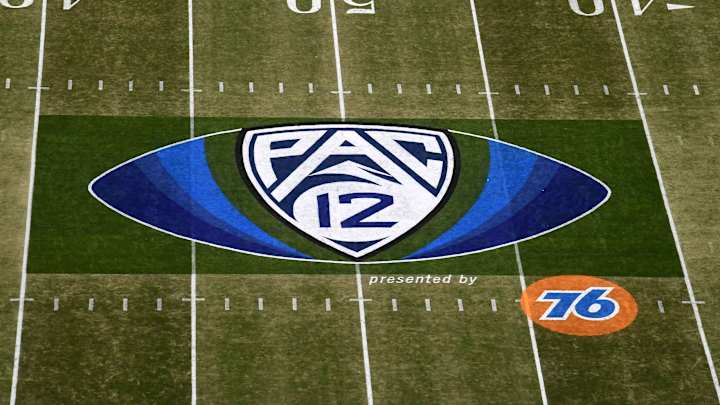Source: Pac-12, Players Hold 'Productive' Call, but Conference Leaders Against 50% Revenue Cut

Pac-12 executives and #WeAreUnited leaders held a productive two-hour call Thursday night in which conference officials said they will not engage in the movement’s most aggressive demand—a 50% cut of conference revenue.
The call mostly centered on the player-only movement’s health and safety concerns regarding COVID-19, which were described as “constructive.” The Pac-12 is expected to relay the players’ concerns to the league’s medical advisory committee, which is in the midst of crafting a comprehensive in-season medical plan. A source familiar with the discussions briefed Sports Illustrated about the call, which was the first among conference officials and a group of league players who are threatening to boycott the 2020 season if a lengthy list of demands are not met.
Twelve athletes were on the call with four Pac-12 leaders: commissioner Larry Scott, ASU athletic director Ray Anderson, Utah athletic director Mark Harlan and Pac-12 assistant commissioner Chris Merino, the league’s liaison to student-athlete groups. SI reported the scheduling of the call earlier this week. No subsequent meeting has been scheduled, but the two sides are expected to follow-up next week.
Pac-12 leaders pushed back against the players’ demand for each sports’ participants to receive a cut of the conference revenue. Conference officials told #WeAreUnited members that such a move would lead to athletes becoming employees and would impact those athletes who do not participate in revenue-generating sports. The two sides did not discuss #WeAreUnited’s demand for Scott and others within the conference to take a salary reduction.
There was little talk about a “boycott” but more about COVID-related concerns. The two sides held what was described as “positive” conversations about phasing back into athletic activities. Conference executives promised to give the group an update soon on guidelines and protocols related to return to practice and play, as well as the future eligibility of those who opt out.
The latter is a key talking point for #WeAreUnited, along with other player movements popping up across the nation. The NCAA has set a deadline of next Friday for schools to create a plan on the eligibility of athletes who opt out. Can their roster spot/scholarship be saved for the following year? Will they get a redshirt? What happens if only half or part of the season is played?
Players from both the Big Ten and Mountain West have banded together to form similar groups, with one distinct difference: their demands are only related to COVID-19.

Ross Dellenger received his Bachelor of Arts in Communication with a concentration in Journalism December 2006. Dellenger, a native of Morgan City, La., currently resides in Washington D.C. He serves as a Senior Writer covering national college football for Sports Illustrated.